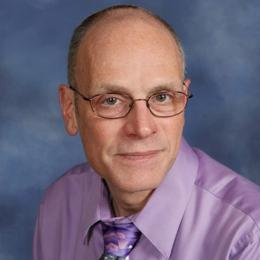Marking time is very important in Judaism. Time is, in fact, the first thing in the Torah that God declares “holy.” Throughout six days of creation, the topography of the earth, the celestial bodies, the plants, insects and animals all appear and are deemed “good.” The pinnacle of the process, the creation of human beings, is deemed “very good” (some days I think the jury is still out on that one). It is not until the creation of Shabbat — a time set aside for the special purpose of rest, renewal, and appreciation of the world around us — that an element of creation is designated as “holy.”
We mark time in a variety of ways. We count from one full moon to the next between Purim and Pesach, and seven times seven weeks from Pesach to Shavuot. There are seven shabbatot between Tisha B’av and Rosh Hashanah, and ten days of Repentance from Rosh Hashanah to Yom Kippur. We mark the annual cycle of study of our sacred texts. We count off days of mourning and Yahrzeits for those we love, and celebrations of joyous lifecycle events with family and friends. We say shehecheyanu when we begin something anew and say “chazak, chazak v’nitchazeik” when we leave a book of Torah.
As Reform Jews at Temple Beth El, we begin a new year at least three times: on Rosh Hashanah, our Jewish new year; on January 1st, our secular new year; and on July 1st, the start of our fiscal year. The latter often comes and goes with little fanfare, but this year it is a very big deal for our Temple family. For some, there is a little Y2K déjà vu. And like Y2K, I expect that we are going to see July 1st come and go without the collapse of world infrastructure, the Temple Beth El community — and hopefully not our HVAC system. On July 1st, Ginny Rosenberg becomes our new Temple president, overseeing our community’s welcome of Asher Knight and Dusty Klass as our two new rabbis, and Sam Swire as our new director of youth engagement.
Our new years’ observances of Rosh Hashanah and the start of the calendar year are seen as times to examine the joys and struggles of the past year and to make personal resolutions for moving forward in a positive direction in the year to come. Since early 2015, Temple Beth El has been examining the path that has led us to this pivotal moment. We looked at our strengths and weaknesses, successes and failures, and hopes for the future before embarking on one of the biggest transitions in our congregation’s long journey. We have had many moments in the last few months to celebrate our abundant blessings and to say farewell to those who have meant so much to us.
This is the moment where we conclude an important chapter in the life of our congregation. We say chazak, chazak, v’nitchaziek — be strong, be strong, and let us strengthen one another. May we embark on our next chapter with strength, courage, and a commitment to supporting and nurturing one another as we turn this page in our history. And we say Baruch atah, Adonai eloheinu, melech ha‘olam shehecheyanu, v’kiy’manu, v’higi‘anu laz’man hazeh — Blessed are You, Adonai our God, ruler of the universe, who has given us life, has sustained us, and has brought us to this exciting moment: standing together as a community on the threshold of a bright and beautiful future.




